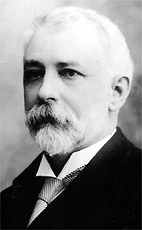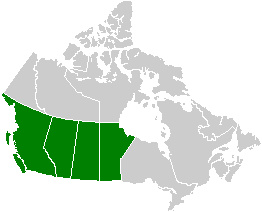|
November 1974 Canadian Federal Budget
The Canadian federal budget for fiscal year 1974–1975 was presented by Minister of Finance John Turner in the House of Commons of Canada on 18 November 1974. This was the first federal budget following the 1974 Canadian federal election, which saw the liberals go from a minority to a majority government. One of the most controversial provision of the budget was the end of the deduction of provincial natural resources royalties from federal tax. According to Roy Romanow, this move kicked off the "resource war", a confrontation between Pierre Trudeau's federal government and the prairie Provinces over the control and revenues from natural resources extraction and energy production. The budget re-affirmed the creation of the Registered Home Ownership Savings Plan. See also * Canadian federal budget * Western alienation In Canadian politics, Western alienation is the notion that the Western provinces – British Columbia, Alberta, Saskatchewan and Manitoba – have ... [...More Info...] [...Related Items...] OR: [Wikipedia] [Google] [Baidu] |
30th Canadian Parliament
The 30th Canadian Parliament was in session from September 30, 1974, until March 26, 1979. The membership was set by the 1974 election on July 8, 1974, and was only changed somewhat due to resignations and by-elections before it was dissolved prior to the 1979 election. It was controlled by a Liberal Party majority led by Prime Minister Pierre Trudeau and the 20th Canadian Ministry. The Official Opposition was the Progressive Conservative Party, led first by Robert Stanfield, and then by Joe Clark. The sessions were prorogued (reason unknown currently). The Speaker was James Jerome. See also the List of Canadian electoral districts 1966-1976 for a list of the ridings in this parliament. There were four sessions of the 30th Parliament: Party standings The party standings as of the election and as of dissolution were as follows: Members of the House of Commons Members of the House of Commons in the 30th parliament arranged by province. Newfoundland Prince Edward ... [...More Info...] [...Related Items...] OR: [Wikipedia] [Google] [Baidu] |
Liberal Party Of Canada
The Liberal Party of Canada (french: Parti libéral du Canada, region=CA) is a federal political party in Canada. The party espouses the principles of liberalism,McCall, Christina; Stephen Clarkson"Liberal Party". ''The Canadian Encyclopedia''. and generally sits at the centre to centre-left of the Canadian political spectrum, with their rival, the Conservative Party, positioned to their right and the New Democratic Party, who at times aligned itself with the Liberals during minority governments, positioned to their left. The party is described as "big tent",PDF copy at UBC Press. practising "brokerage politics", attracting support from a broad spectrum of voters. The Liberal Party is the longest-serving and oldest active federal political party in the country, and has dominated federal |
John Turner
John Napier Wyndham Turner (June 7, 1929September 19, 2020) was a Canadian lawyer and politician who served as the 17th prime minister of Canada from June to September 1984. He served as leader of the Liberal Party of Canada and leader of the Official Opposition from 1984 to 1990. Turner practised law before being elected as a member of Parliament in the 1962 federal election. He served in the cabinet of Prime Minister Pierre Trudeau as minister of justice and attorney general from 1968 to 1972, and minister of finance from 1972 to 1975. As a cabinet minister, Turner came to be known as a leader of the Business Liberal faction of the Liberal Party. Amid a global recession and the prospect of having to implement unpopular wage and price controls, Turner resigned from his position in 1975. From 1975 to 1984, Turner took a hiatus from politics, working as a corporate lawyer on Bay Street. Trudeau's resignation in 1984 triggered a leadership election, in which Turner succe ... [...More Info...] [...Related Items...] OR: [Wikipedia] [Google] [Baidu] |
Minister Of Finance (Canada)
The minister of finance (french: ministre des Finances) is the minister of the Crown in the Canadian Cabinet who is responsible for overseeing the Department of Finance and presenting the federal government's budget each year. It is one of the most important positions in the Cabinet. Chrystia Freeland serves as the 40th and current finance minister, assuming the role in August 2020 following the resignation of Bill Morneau. She concurrently serves as the deputy prime minister of Canada. Because of the prominence and responsibility of this cabinet position, it is not uncommon for former ministers of finance to later become prime minister. Charles Tupper, R. B. Bennett, John Turner, Jean Chrétien, and Paul Martin all became prime minister after previously serving as minister of finance. Responsibilities In addition to being the head of the Department of Finance, the minister of finance is also the minister responsible for: *Bank of Canada *Canada Deposit Insurance Corpor ... [...More Info...] [...Related Items...] OR: [Wikipedia] [Google] [Baidu] |
House Of Commons Of Canada
The House of Commons of Canada (french: Chambre des communes du Canada) is the lower house of the Parliament of Canada. Together with the Crown and the Senate of Canada, they comprise the bicameral legislature of Canada. The House of Commons is a democratically elected body whose members are known as members of Parliament (MPs). There have been 338 MPs since the most recent electoral district redistribution for the 2015 federal election, which saw the addition of 30 seats. Members are elected by simple plurality ("first-past-the-post" system) in each of the country's electoral districts, which are colloquially known as ''ridings''. MPs may hold office until Parliament is dissolved and serve for constitutionally limited terms of up to five years after an election. Historically, however, terms have ended before their expiry and the sitting government has typically dissolved parliament within four years of an election according to a long-standing convention. In any case, an ac ... [...More Info...] [...Related Items...] OR: [Wikipedia] [Google] [Baidu] |
1974 Canadian Federal Election
The 1974 Canadian federal election was held on July 8, 1974, to elect members of the House of Commons of Canada of the 30th Parliament of Canada. The governing Liberal Party was reelected, going from a minority to a majority government, and gave Prime Minister Pierre Trudeau his third term. The Progressive Conservatives, led by Robert Stanfield, did well in the Atlantic provinces, and in the West, but the Liberal support in Ontario and Quebec ensured a majority Liberal government. Overview The previous election had resulted in the Liberals emerging as the largest party, but far short of a majority, and only two seats ahead of the Progressive Conservatives. They were able to form a government with the support of the New Democratic Party, but the NDP withdrew their backing in May 1974 and voted with the Progressive Conservatives to bring down Trudeau's government in protest of a budget proposed by finance minister John Turner, which the opposition parties felt did not go far ... [...More Info...] [...Related Items...] OR: [Wikipedia] [Google] [Baidu] |
Roy Romanow
Roy John Romanow (born August 12, 1939) is a Canadian politician and the 12th premier of Saskatchewan from 1991 to 2001. Early life Romanow was born in Saskatoon, Saskatchewan, to Tekla and Michael Romanow, who were Ukrainian immigrants from Ordiv, currently Chervonohrad Raion, Ukraine. His first language as a child was Ukrainian. He studied at the University of Saskatchewan, earning a B.A. in Political Science and a LL.B. while involving himself heavily and early on in student politics. Political career Electoral record Romanow had considerable electoral success, being elected to the Legislative Assembly of Saskatchewan eight times in the nine general elections from 1967 to 1999, as a member of the Saskatchewan New Democratic Party. He was first elected to the Legislative Assembly of Saskatchewan in the 1967 provincial election in the riding of Saskatoon Riversdale. He was re-elected in the general elections of 1971, 1975 and 1978. In the 1982 general election he was def ... [...More Info...] [...Related Items...] OR: [Wikipedia] [Google] [Baidu] |
Pierre Trudeau
Joseph Philippe Pierre Yves Elliott Trudeau ( , ; October 18, 1919 – September 28, 2000), also referred to by his initials PET, was a Canadian lawyer and politician who served as the 15th prime minister of Canada The prime minister of Canada (french: premier ministre du Canada, link=no) is the head of government of Canada. Under the Westminster system, the prime minister governs with the Confidence and supply, confidence of a majority the elected Hou ... from 1968 to 1979 and from 1980 to 1984. He also briefly served as the Leader of the Opposition (Canada), leader of the Opposition from 1979 to 1980. He served as leader of the Liberal Party of Canada from 1968 to 1984. Trudeau was born and raised in Montreal, Quebec; he rose to prominence as a lawyer, intellectual, and activist in Quebec politics. Although he aligned himself with the social democratic New Democratic Party, he felt that they could not achieve power, and instead joined the Liberal Party. He was e ... [...More Info...] [...Related Items...] OR: [Wikipedia] [Google] [Baidu] |
Prairie Provinces
The Canadian Prairies (usually referred to as simply the Prairies in Canada) is a region in Western Canada. It includes the Canadian portion of the Great Plains and the Prairie Provinces, namely Alberta, Saskatchewan, and Manitoba. These provinces are partially covered by grasslands, plains, and lowlands, mostly in the southern regions. The northernmost reaches of the Canadian Prairies are less dense in population, marked by forests and more variable topography. If the region is defined to include areas only covered by prairie land, the corresponding region is known as the Interior Plains. Physical or ecological aspects of the Canadian Prairies extend to northeastern British Columbia, but that area is not included in political use of the term. The prairies in Canada are a temperate grassland and shrubland biome within the prairie ecoregion of Canada that consists of northern mixed grasslands in Alberta, Saskatchewan, southern Manitoba, as well as northern short grasslands in sou ... [...More Info...] [...Related Items...] OR: [Wikipedia] [Google] [Baidu] |
Canadian Federal Budget
In Canada, federal budgets are presented annually by the Government of Canada to identify planned government spending and expected government revenue, and to forecast economic conditions for the upcoming year. They are usually released in February or March, before the start of the fiscal year. All the Canadian provinces also present budgets. Since provincial finances depend on funds from the federal government, they are usually released after the federal budget. Budget process The budget is announced in the House of Commons by the Minister of Finance, who traditionally wears new shoes while doing so. The Budget is then voted on by the House of Commons. Budgets are a confidence measure, and if the House votes against it the government can fall, as happened to Prime Minister Joe Clark's government in 1980. The governing party strictly enforces party discipline, usually expelling from the party caucus any government Member of Parliament (MP) who votes against the budget. Oppo ... [...More Info...] [...Related Items...] OR: [Wikipedia] [Google] [Baidu] |
Western Alienation
In Canadian politics, Western alienation is the notion that the Western provinces – British Columbia, Alberta, Saskatchewan and Manitoba – have been alienated, and in some cases excluded, from mainstream Canadian political affairs in favour of Ontario and Quebec. Western alienation claims that these latter two are politically over-represented and economically favoured, which has given rise to the sentiment of alienation among many western Canadians. History of alienation Following Confederation in 1867, the first Canadian Prime Minister, Sir John A. Macdonald, announced a "National Policy" to "broaden the base of the Canadian economy and restore the confidence of Canadians in the development of their country". The November 1974 Canadian federal budget terminated the deduction of provincial natural resources royalties from federal tax. According to Roy Romanow, this move kicked off the "resource war", a confrontation between Pierre Trudeau's federal government and the ... [...More Info...] [...Related Items...] OR: [Wikipedia] [Google] [Baidu] |




_cropped.jpg)

